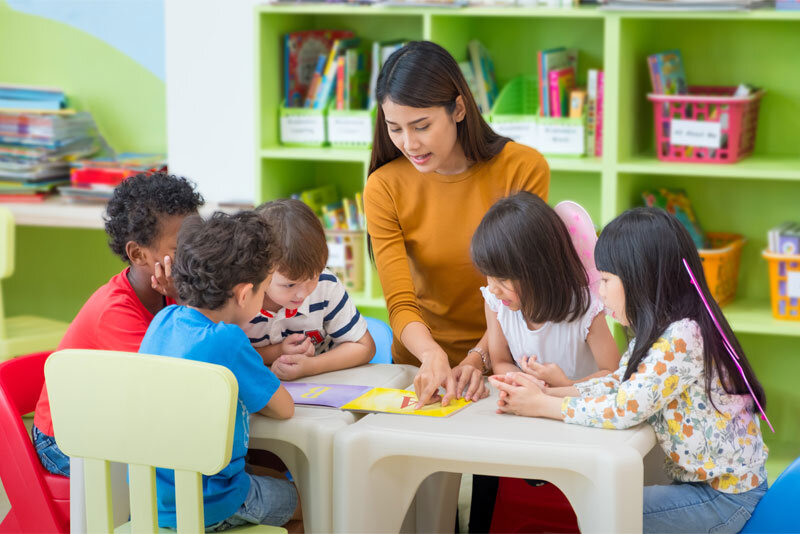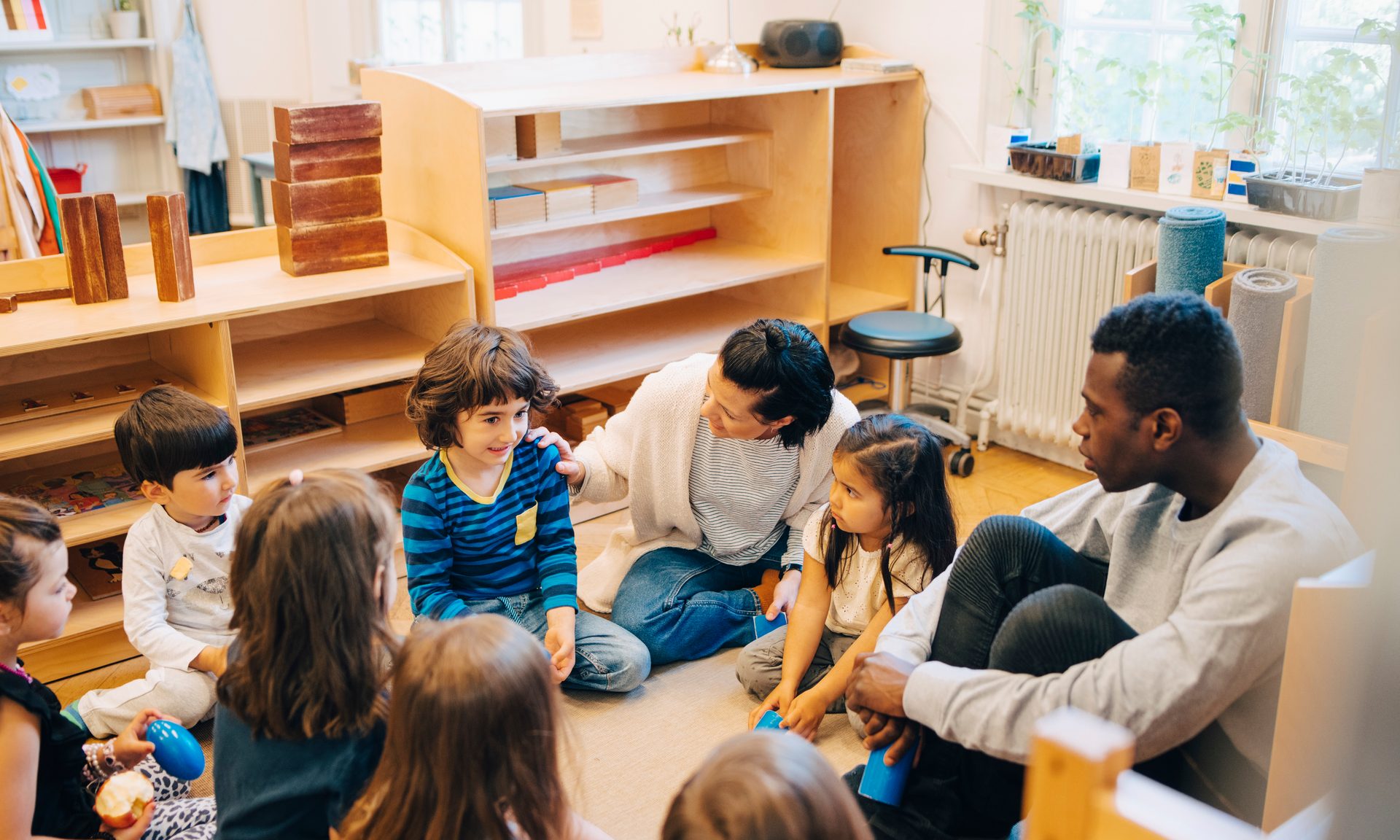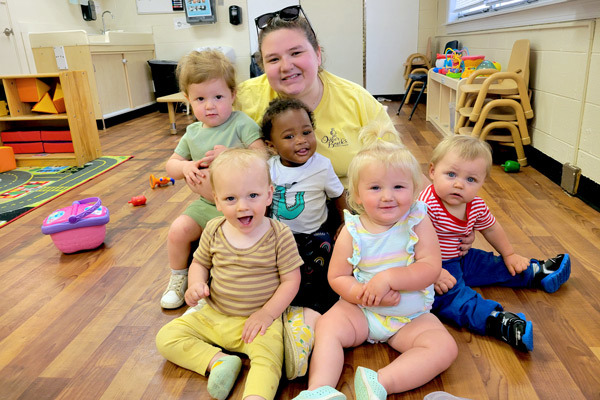How Child Care Near Me Boosts Development Through Structured Play
Wiki Article
The Function of DAYCARE in Fostering Social Abilities and Early Learning
Daycare offers as a significant setting for little ones, helping with crucial social interactions that advertise early discovering. In this structured setting, kids involve with caregivers and peers, establishing essential interaction and collaboration abilities. As they navigate play and different tasks, they learn to fix problems and build psychological intelligence. Comprehending the subtleties of these interactions discloses the profound impact day care carries a youngster's advancement, forming their future partnerships and academic readiness. What specific abilities do youngsters acquire in this setting?The Importance of Social Interaction in Daycare
While numerous parents identify the significance of very early childhood education and learning, the duty of social communication in daycare is commonly undervalued. Childcare setups provide kids with indispensable chances to engage with peers, fostering necessary social abilities. During these formative years, children discover to navigate various social characteristics, such as sharing, collaboration, and problem resolution. Engaging with diverse age groups and personalities enhances their capability to adjust to various settings and develop compassion in the direction of others.
Building Interaction Abilities With Play
Play acts as a powerful tool for children to develop important communication abilities in daycare setups. Through various play tasks, youngsters talk, share their ideas, and find out to pay attention to others. Role-playing video games, as an example, urge them to use language in various contexts, advertising vocabulary growth and understanding of social signs.
Narration during playtime enables children to share concepts and emotions, assisting them establish narrative skills and confidence in their verbal expressions. In general, play not only works as a delightful activity but likewise as an important system for developing the interaction skills essential for effective social interactions in later life.
Motivating Collaboration and Synergy
Cooperation and team effort are necessary skills that children can cultivate in day care atmospheres. With numerous team tasks, such as constructing projects or collaborative games, kids learn to share duties and work towards typical goals. These interactions cultivate an understanding of the relevance of listening to others, discussing duties, and compromising when essential.In day care setups, caretakers usually produce opportunities for children to take part in teamwork by encouraging them to participate in team tasks. This not just aids children create social bonds however likewise cultivates a sense of belonging and area.
As they browse these cooperative experiences, kids acquire important insights into the characteristics of dealing with peers. They learn to value varied perspectives and identify that each member contributes uniquely to the group initiative. Ultimately, these early lessons in cooperation and synergy prepared for much healthier connections and efficient collaboration in future social and scholastic setups.
Structured Discovering Activities and Cognitive Advancement
Structured discovering find more info activities play an integral duty in fostering cognitive growth in kids (Daycare North York). These tasks, that include problems, narration, and hands-on experiments, promote critical thinking and analytical skills. In a childcare setting, organized understanding encourages youngsters to engage with their peers, enhancing their capability to procedure information and comprehend numerous concepts
Through assisted play and interactive jobs, children develop fundamental skills such as numeracy and literacy. For circumstances, tasks focused around numbers can help children comprehend mathematical concepts, while narration improves language procurement and comprehension. Additionally, structured understanding allows instructors to assess developing progression and dressmaker tasks to specific knowing needs.

Including a varied variety of structured tasks not only advertises cognitive growth however additionally prepares youngsters for future scholastic success. By offering a well balanced atmosphere that promotes expedition and query, childcare programs play a crucial duty in forming the cognitive capacities of young students.
Cultivating Emotional Intelligence and Self-confidence
Emotional knowledge and confidence are essential components of a child's development, matching the cognitive skills fostered through structured knowing tasks. In day care setups, kids are supplied with possibilities to share their emotions and take part in social interactions, which are crucial for building emotional recognition. Via guided play and team tasks, children discover to determine their feelings, identify those of others, and develop compassion.Additionally, communication with peers and caretakers helps to grow self-confidence and resilience. Favorable support and motivation from adults empower kids to take dangers and face difficulties, fostering a sense of accomplishment. As they navigate social characteristics, children build confidence in their capacities to communicate, work together, and resolve conflicts - Child Care Near Me. This nurturing setting enables the gradual development of psychological intelligence, which is important for future interpersonal partnerships and overall well-being. Consequently, daycare plays a significant function in home promoting both psychological knowledge and confidence in children
Often Asked Inquiries
How Can Moms And Dads Choose the Right Day Care for Their Youngster?
Moms and dads must consider factors such as area, team credentials, safety requirements, educational program, and evaluates from other parents when choosing the appropriate daycare for their child, ensuring it straightens with their kid's developmental needs and family values.
What Age Is Best for Starting Daycare?

Just How Does Day care Influence Children's Habits in your home?
Day care frequently positively affects children's behavior in your home by improving visit homepage social abilities, promoting independence, and motivating psychological guideline (Daycare North York). As an outcome, youngsters may exhibit better interaction and teamwork, causing even more harmonious household characteristicsAre There Any Kind Of Disadvantages to Day Care Participation?
Yes, there are disadvantages to daycare attendance, including potential separation stress and anxiety, direct exposure to illnesses, and irregular caregiving. These elements can affect a kid's psychological wellness and modification in your home, impacting total family characteristics.How Can Moms And Dads Assistance Social Skills Learned at Daycare?
Parents can sustain social abilities discovered at childcare by facilitating playdates, motivating cooperative tasks, modeling favorable communications, reviewing feelings, and strengthening sharing and communication at home, consequently enhancing their child's social growth and confidence.Childcare serves as a significant environment for young children, assisting in important social communications that advertise very early learning. Daycare setups provide youngsters with vital possibilities to engage with peers, promoting important social skills. Play serves as a powerful medium for kids to build important interaction abilities in childcare setups. In day care setups, youngsters are provided with opportunities to express their emotions and involve in social interactions, which are crucial for building psychological awareness. Childcare commonly positively influences children's habits at home by enhancing social skills, promoting freedom, and encouraging emotional policy.
Report this wiki page